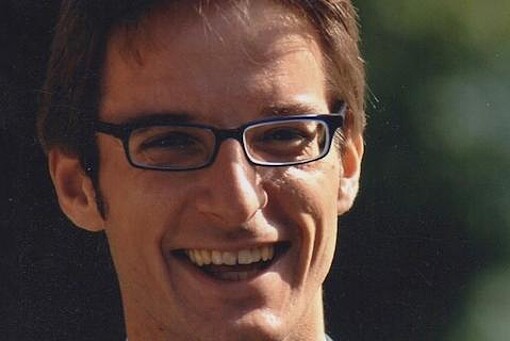Mathematische Grundlagen, Theorie formaler Sprachen, Berechenbarkeitstheorie, Logik, Petrinetze, Prozessalgebra, Algorithmik, Komplexitätstheorie, Graphentheorie, Spezifikationstechniken, Agentensysteme
Prof. Dr. Michael Köhler-Bußmeier

Tätigkeiten
Lehrgebiete/Lehrfächer
Schwerpunktthemen/Kernkompetenzen
Formale Spezifikation, Logik, Verifikation, Model-Checking, Theorie der Nebenläufigkeit, Prozessmodellierung, verteile Multi-Agentensysteme, Adaptive Systeme, Sozionik
Ämter/Gremien/Mitgliedschaften
- Vorsitz der Prüfungssausschüsse AI, TI/ITS, ECS, WI, Master Informatik (Dept. Informatik)
- Mitglied Vertrauensausschuss (Fakultät TI), Stellvertreter (bis 2022)
- Lehr-/Lern-Coach
- DASHH Principal Investigator (Data Science at Hamburg, Helmholtz Graduate School)
- Mitglied im Forschungs- und Transferzentrum Smart Systems
Betreute Abschlussarbeiten/Doktorarbeiten
Doktorarbeiten:
- Frank Andreas Heitmann. Algorithms and Hardness Results for Object Nets. Dissertation an der Fakultät für Mathematik, Informatik und Naturwissenschaften der Universität Hamburg. 2013. ediss.sub.uni-hamburg.de/volltexte/2013/6364
- Wester-Ebbinghaus, Matthias. Von Multiagentensystemen zu Multiorganisationssystemen - Modellierung auf Basis von Petrinetzen. Dissertation an der Fakultät für Mathematik, Informatik und Naturwissenschaften der Universität Hamburg. 2010. ediss.sub.uni-hamburg.de/volltexte/2011/4974/ (fachliche Betreuung)
- Seok Kim, Über die Neudefinition Luhmannscher 'Operation' und 'operativer Geschlossenheit' sowie deren methodische, methodologische, sozialtheoretische und soziologisch-systemtheoretische Konsequenzen, 2023, Zweitbetreuung
KURZBIOGRAPHIE
- seit 2013: Professur für Theoretische Informatik an der HAW Hamburg
- 2010-2013: Vertretungsprofessur an der Universität Hamburg
- 2009. Habilitation. Koordinierte Selbstorganisation und selbstorganisierte Koordination. Gutachter: Jürgen Dix, Otthein Herzog und Rüdiger Valk.
- 2005-2010: Post-Doc am Arbeitsbereich Theoretische Grundlagen der Informatik, FB Informatik, Universität Hamburg,
- Nominiert für den Preis Beste Promotion der Gesellschaft für Informatik (GI).
- 2004. Promotion an der Universiät Hamburg. Objektnetze: Definition und Eigenschaften. Gutachter: Wilfried Brauer, Daniel Moldt und Rüdiger Valk
- 1999-2005: Mitarbeiter im DFG-SPP Sozionik
- Preisträger Bestes Vordiplom, gestiftet von Sun Microsystems.
- 1994-1999: Studium der Informatik
Forschungsprojekte
Publikationen
Ausgewählte Publikationen:
- Michael Köhler-Bußmeier, Jan Sudeikat. Defining adaption measures for organisational multi-agent systems. Int. J. Parallel Emergent Distributed Syst. 38(6): 507-521 (2023)
- Michael Köhler-Bußmeier. Restricting Hornets to support adaptive systems. In Wil van der Aalst and Eike Best, editors, PETRI NETS 2017, Lecture Notes in Computer Science. Springer-Verlag, 2017.
- Michael Köhler-Bußmeier and Frank Heitmann. An upper bound for the reachability problem of safe, elementary hornets. Fundamenta Informaticae, 143:89–100, 2016.
- Michael Köhler-Bußmeier. A survey on decidability results for elementary object systems. Fundamenta Informaticae, 130(1):99–123, 2014.
- Michael Köhler-Bußmeier. On the complexity of the reachability problem for safe, elementary Hornets. Fundamenta Informaticae, 129:101–116, 2014.
Siehe auch: dblp.org
... my Erdös-Number=3 (Paul Erdös/Solomon Marcus/Manfred Kudlek/Michael Köhler)
Weitere Informationen
SM@RT (Self-Modifcation@Run-Time)
In this project we develop a system for the distributed execution of multi-agent systems using modern enactment services, i.e. cloud technology. The system is based on a formal model that describes functional properties as well as timing aspects of the simulation.
The formal model is used as part of the run-time environment where its concrete parameters are constantly adjusted with respect to the real, i.e. observed timing behaviour, via a feedback-loop. Thus our system is reflective, i.e. it has a so called self-X property. The model is used to predict the cost/benefit ratio a run-time adaption operation (e.g. code migration for load balancing purposes) has. We identify the following central aspects of our model:
- Agents and their decision logic
- Network: Effects of locality, distribution and interaction
- Distributed learning agents, including distributed feedback and adaption
- Organisation, i.e. structures to overcome the restrictions of bounded agents
- Learning Organisations: Mechanisms within the organisation itself that react to changes
Further reading: Michael Köhler-Bußmeier, Jan Sudeikat. Defining adaption measures for organisational multi-agent systems. Int. J. Parallel Emergent Distributed Syst. 38(6): 507-521 (2023)
Executable Specifications for Open Multi-Agent Organisations
In this project we investigate programming language concepts for multi-agent systems that are based on the organisational paradigm. Here we combine the flexibility of the agent-oriented approach (with planning, cooperation, learning etc.) with the predictability-at-large, which comes from the system architecture. An organisation gives shape to the ongoing processes, like team formation, acceptable compromises etc.
Considering open MAS introduces another challenge, since third-party code comes into play at run-time, raising the need for a rich type systems (e.g. session types) and run-time verification via the execution engine.
Further reading: Matthias Wester-Ebbinghaus, Michael Köhler-Bußmeier: Model-Driven Middleware Support for Team-Oriented Process Management.Transactions on Petri Nets and Other Models of Concurrency 8: 159-179. 2013. (vgl. dazu auch Folien zu organisationsbasierten MAS).
Transformations Systems and the Complexity of Self-Adaption
Here, we study self-adaptive systems and their complexity in the context of Petri nets that are able to modify their net-topology at runtime, like object nets, reconfigurable Petri nets, nested nets, Hornets, etc. It turns out that even simple questions like "Is it possible to reach a given state from the initial one?" which is known to be Space-complete for safe p/t nets jumps to the class of ExpSpace-hard problems - meaning a quite drastic increase in complexity induced by the possibility of runtime modification. Our theoretical investigations are accompanied by the tool support via RENEW and ReConNet.
Recommended reading: On the Complexity of the Reachability Problem for Safe, Elementary Hornets. Fundamenta Informaticae, vol. 129, no. 1-2, pp. 101-115, 2014. (vgl. dazu die Folien zu "The Reachability Problem for Elementary Hornets").
Models of Complex Adaptive Systems: Self-Organising Socio-Technical Processes
In this project we like to explore the implications of the actor-network perspective (coming from the social sciences) when applied to social processes. On one hand there are structural restrictions (coming from norms, roles, etc.) - on the other hand there are a lot of individual factors involved (like motivation, previous knowledge, etc.).
When the different actors interact, both driving forces heavily influence each other in mutual dependency, which is called in sociology the micro-macro-link. Very similar, there is a mutual dependency coming from the technical side: While new challenges demand for new digital technologies (ambient intelligence etc.) from the micro-side, the macro-side also provides infrastructure technologies (like social networks etc.) for scenarios that have been unseen at the time of their development. Also these two sides are heavily intertwined.
Further reading: Selbstorganisation und Governance in künstlichen und sozialen Systemen. Lit Verlag. 2009
